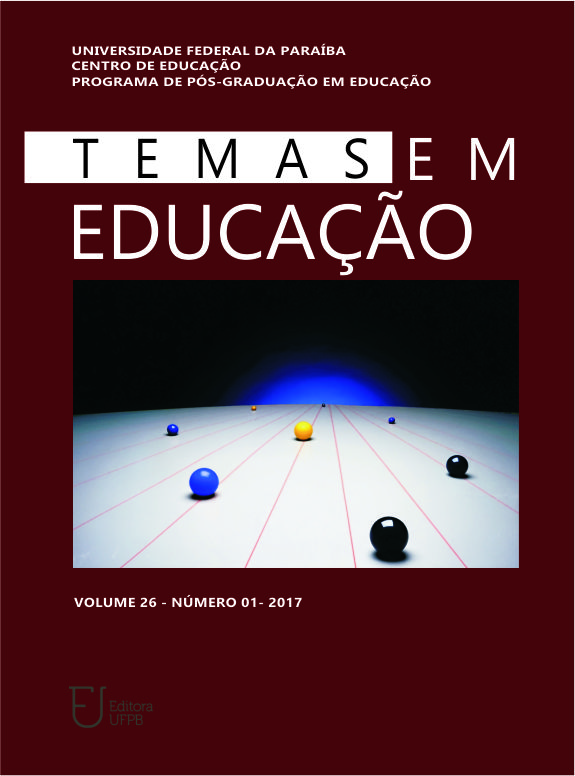LOCAL AND UNIVERSAL AS FORMATION SPACES IN PAULO FREIRE
LOCAL AND UNIVERSAL AS FORMATION SPACES IN PAULO FREIRE
DOI:
https://doi.org/10.22478/ufpb.2359-7003.2017v26n1.29104Keywords:
Work withfighting force, Paulo Freire, Relation between local and universalAbstract
The text marks an analysis carried out in the published literature concerning Paulo Freire, with emphasis on the active subjects of his reflection, who are the workers. It shows that both, in Brazil and Latin America, there is an increase in precarious work and female work, with a frequent devaluation of qualifications and wages. It shows the growing interest in update the thinking of Paulo Freire and the emphasis the weakening of studies about him and about the emphasis of the strong political dimension, which is the greatest mark of his reflections in defending the educational action. The work allows us to reflect that the interest of Paulo Freire in rooting educational action in the communities and in a direct relationship with the population was not separated from his interest in the universal. It emphasizes that it is very difficult or even impossible to understand the interpretation of his respect for the local or regional as a rejection of the universal.
Downloads
Downloads
Published
How to Cite
Issue
Section
License
Authors who publish in this journal agree to the following terms:
. Authors retain the copyright and grant the journal the right to first publication, with the work simultaneously licensed under the Licença Creative Commons Attribution that allows the sharing of the work with acknowledgment of authorship and initial publication in this magazine. . Authors are authorized to assume additional contracts separately, for non-exclusive distribution of the version of the work published in this journal (eg, publishing in institutional repository or as a book chapter), with acknowledgment of authorship and initial publication in this journal.
. Authors are permitted and encouraged to publish and distribute their work online (eg in institutional repositories or on their personal page) at any point before or during the editorial process, as this can generate productive changes, as well as increase impact and citation of the published work (See O Efeito do Acesso Livre).



















